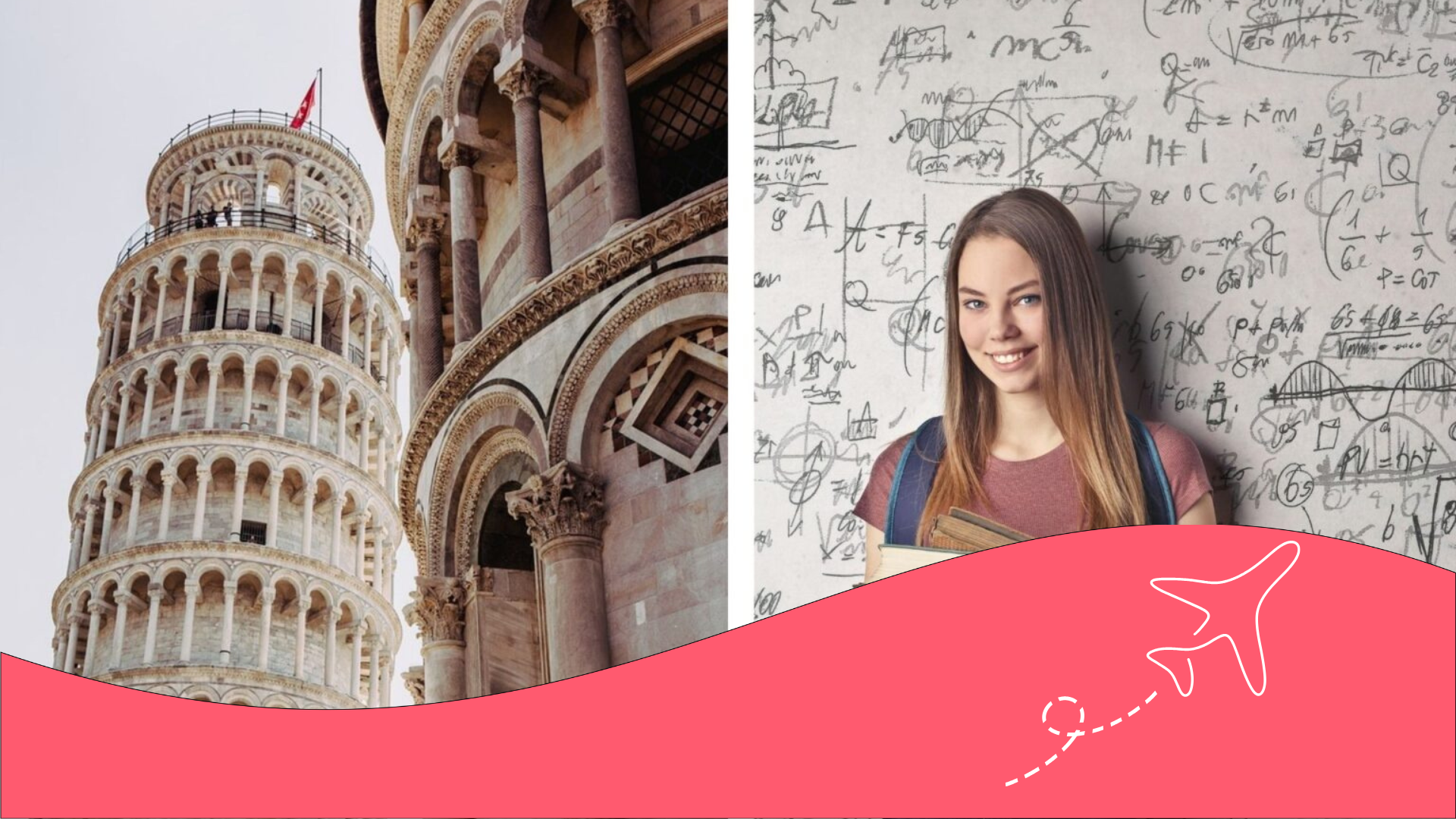Study in Argentina as an international student: Complete guide
Are you looking for new professional horizons? This guide on how to study in Argentina as a foreigner may be useful for you.
Thinking about moving to Buenos Aires, Córdoba, Rosario, or La Plata to study at one of Argentina’s top universities? Argentina is a popular destination for international students, thanks to its high-quality, affordable education. But that’s just the beginning. The country also offers a rich culture, stunning landscapes, a wide range of climates, and incredible diversity from region to region. Studying here is the perfect opportunity to experience everything Argentina has to offer. We know the process can feel a bit overwhelming, but we’ll walk you through everything you need to know if you want to study in Argentina as a foreigner, step by step.
We’ll give you a quick overview of how Argentina’s education system works, what legal requirements you’ll need to meet to study there, how to choose a university, apply for a visa, move, and settle into local life. You’ll also find information about the cost of living for students, how to validate your academic credentials, and more. By the time you reach the end, you’ll have a much clearer picture of what it really means to study in this South American country.
How does the education system work in Argentina?
Before we dive into the details of how to study in Argentina as an international student, let’s take a moment to look at how the country’s education system works. Argentina’s system is well-known across Latin America for being both accessible and high-quality.
In short, Argentina’s education system divides learning into four levels—early childhood, primary, secondary, and higher education—and offers both public and private options at each stage. Early childhood education can start as early as 45 days old, though it’s only mandatory from age four. Primary and secondary education are compulsory for all residents, while higher education is optional and includes undergraduate degrees, postgraduate programs (like specializations, master’s degrees, and doctorates), as well as technical and vocational courses.
Argentina has become a top choice for international students thanks to its diverse and accessible higher education system. One of the biggest perks? Public universities are free of charge, appealing to students from Bolivia, Peru, Paraguay, Colombia, and beyond.
Summary of educational levels in Argentina
| Educational level | Duration | Description | Languages of study |
| Initial level | From 45 days to five years old. | It is compulsory from the child’s fourth birthday. It is taught in public and private kindergartens and nursery schools in Spain. | Spanish |
| Primary level | Six to seven years, depending on the province | It is compulsory and free of charge in public schools. Ends with the Primary Education Certificate. | Spanish, although English is taught as part of the academic program in most schools, as well as other languages in some private schools. |
| Secondary level | Five to six years | It’s mandatory and free in public schools. Students can choose from different tracks like General Studies, Business, Technical, or Arts. | Spanish, although English is taught as part of the academic program in most schools, as well as other languages in some private schools. |
| Higher level | Two to seven years, depending on the type of degree program | It includes technical degrees (two to three years), bachelor’s and engineering degrees (four to six years), medicine (six to seven years), master’s degrees (one to two years) and doctorates (three to five years). They are offered in more than 130 public and private universities in the country. | Spanish, but many universities offer degrees and courses in English. There are also bilingual degree programs in some private institutions, as well as undergraduate and graduate courses in French and Portuguese. |
Is the public university still free for foreigners in Argentina?
We’re including this section because it’s been a hot topic over the past few months. Since the most recent change in government, Argentina has been going through major shifts in many areas, and education for international students is no exception.
At the end of last year, the national government announced that public universities would no longer offer free education to non-resident international students. Instead, each institution now has the authority to charge tuition fees to foreign students. This policy took effect on July 1, 2025. So, if you’re considering attending a public university in Argentina, keep in mind that you’ll likely have to pay a monthly fee.
Private universities in Argentina charge tuition to all students, whether they’re local or international. The good news is that there are plenty of scholarships available, which can provide significant financial relief.
That said, foreign nationals with temporary residency still have free access to early childhood, primary, and secondary education, whether in public or private institutions. This right is protected under the new decree, as these levels of education are considered essential services. Likewise, Argentine citizens and foreigners with permanent residency will continue to receive free university education.

How to study in Argentina as a foreigner? Key requirements
With a basic understanding of Argentina’s education system under your belt, let’s move on to what you’ll need to study here as a foreigner. This part is key, missing or incorrect paperwork could keep you from enrolling. So, it’s best to get organized and start collecting your documents early.
Generally speaking, international students looking to study in Argentina need to submit certain documents. Keep in mind that each university may have its own additional requirements, so it’s a good idea to check with your chosen school before starting the application process.
- Basic documentation: This usually includes a legalized and apostilled birth certificate, a criminal background check (for those over 16) issued by your home country or your country of residence for the past three years, and a passport or national ID, depending on your country of origin.
- Student visa: If your passport is from an exempt country, you usually don’t need a visa for stays shorter than 90 days. Short courses like workshops, seminars, or language classes often fall into this category. However, if you’re enrolling in a program that runs longer than three months, you’ll need to apply for a student visa.
- Letter of acceptance from the educational institution: It’s an official document from the university or school you’ll be attending that confirms your acceptance and enrollment. If you’re going to a private institution, you’ll also need to provide proof of payment for your registration or tuition.
- Proof of sufficient funds: You need to cover living expenses like housing, food, and transportation. Because of this, you’ll have to prove that you have enough funds to support yourself during your stay. You can show this by providing bank statements, sponsorship letters, or documents that confirm you’ve received a scholarship.
- Validation of previous studies: For undergraduate and graduate programs, you’ll need to provide your legalized and apostilled high school or university diploma. In some cases, an official translation into Spanish may also be required.
- Medical insurance: Starting July 1st, a new regulation requires all foreigners entering Argentina to have health insurance and to provide a sworn statement confirming they’re covered. This rule applies to international students as well.
How to study in Argentina as a foreigner? Steps to follow
Now that you’re clear on the paperwork required to study in Argentina as a foreigner, we’ll guide you step-by-step through choosing your university to settling into your new home.
1- Evaluate universities and courses in Argentina
The first step is to be clear about what you want to study. Then, you’ll need to choose from the many universities and educational institutions across Argentina. There’s a huge variety to pick from, so it’s worth taking the time to research each school and what programs they offer.
Among public universities, the University of Buenos Aires (UBA) and the National University of La Plata stand out. Both have a long history and strong reputations, making them some of the top universities in Latin America. Private universities, on the other hand, charge tuition and monthly fees but often offer more flexible programs. One of the most well-regarded private institutions is Torcuato Di Tella University, known for its academic excellence.
When choosing a university, you’ll also need to decide on a program. We recommend checking out the websites of the schools that catch your interest to see what programs they offer. There’s a wide range to choose from, including full degree programs that lead to professional qualifications, as well as shorter courses and technical certificates. For example, technical programs usually last between three and six months and tend to be more affordable. Studying engineering at UBA might take five to six years, while a digital marketing course could be completed in under six months.
2- Review financing options
Argentina used to be cheaper for foreigners but more costly for locals because of the peso’s steep drop and the multiple exchange rates for the dollar. Lately, inflation has eased, and the peso is slowly gaining strength. This means that for international students, living expenses have gone up since the unofficial dollar rate isn’t as favorable anymore. Simply put, you don’t get as many pesos per dollar on the market, making things like rent, food, and transport pricier.
That’s why, if you’re planning to study in Argentina, it’s smart to stay informed about the financial aid options universities offer. Many schools provide partial or full scholarships for courses, undergraduate, and graduate programs. There are also programs like scholarships from the Inter-American Development Bank (IDB) and the Organization of American States (OAS) that support studies in Argentina. Plus, a lot of private institutions allow tuition payments to be made in monthly installments.
That said, it’s a good idea to check the website of Argentina’s Ministry of Education for the latest information on available scholarships. You should also take a look at what each university or school you’re interested in offers, since many have their own scholarship programs.
3- Apply to a study program in Argentina
After narrowing down your choices, it’s time to start the application process. Each university might have its own steps, but here’s a general overview of how it usually works:
- Gather the necessary documents: You’ll typically need to submit your passport or national ID, an apostilled high school diploma (and in some cases, a certified Spanish translation), a motivation letter and proof of Spanish proficiency if you’re applying to a program taught in Spanish.
- Submit an application for admission to the chosen university.
- Take an entrance exam, if applicable (not all universities or careers require it).
- Have your academic record on hand, as many universities usually ask for it.
- If you apply for a program at a private institution, once you have been accepted as a student, you’ll have to pay the corresponding enrollment fee.
4- Applying for a visa to study in Argentina
If you’re planning to study in Argentina for more than three months, you’ll need to get a student visa before arriving. You complete this process through the Argentine consulate in your home country and submit several required documents. Our advice? Start early, if not there’s a chance your visa won’t be ready by the time your classes begin.
There are two types of visas you can apply for:
- Visa for unofficial students. This type of visa lasts up to one year and allows international students to take part in academic exchanges, training programs, or scholarship-funded activities.
- Visa for official education students. This visa is meant for international students enrolling in formal academic programs at recognized Argentine institutions. That includes university degrees, technical training courses, or even high school studies. It’s typically valid for the duration of the academic program or school year.

5- Moving to Argentina and kicking off studies
Moving to a new country takes planning, so it’s a good idea to start looking for housing early. Keep in mind that cities like Buenos Aires, Rosario, and Córdoba tend to have higher rental prices. That’s why many students choose to share an apartment to cut costs. You can find listings on websites like Zonaprop and Argenprop, or in Facebook groups dedicated to student housing.
Once you’ve settled in, you’ll gradually get a feel for Argentine customs. For example, mate quickly becomes your study partner; Argentinians love socializing and always find a reason to get together with friends; and studying in groups is a popular way to learn. Ultimately, studying in Argentina can be both a great educational opportunity and an enjoyable cultural experience.
6- Connectivity in Argentina
Another important thing to consider before moving to Argentina is how you’ll stay connected. As a student, you’ll need reliable internet for downloading materials, joining video calls and group classes, handling paperwork, and even using GPS until you get familiar with your new city. Simply put, having good internet will make your student life a whole lot easier.
We suggest checking out Holafly’s monthly plans—they’ll keep you connected in Argentina from day one, plus in over 175 other countries. That way, if you decide to travel around Latin America, you won’t have to get a new eSIM for every country.
Choosing between the 10 GB, 25 GB, or unlimited data plans really depends on how much you need to stay connected. The good news is you can always cancel or switch your plan whenever you want. The 10 GB plan covers basics like browsing, emailing, and using maps. If you make frequent video calls, the 25 GB plan suits you better. And if you want internet on all your devices without worrying about running out of data, the unlimited plan is the way to go.
Important: If you are a frequent traveler and want to stay connected without worrying about expensive roaming or looking for a new SIM at every destination, Holafly’s subscription plans are for you. With a single eSIM, enjoy internet in more than 170 countries for a fixed price and no surprises on your bill. Travel without limits and connect easily and securely! 🚀🌍

How to study in Argentina as a foreigner? Homologation of degrees
Another important point for international students is that you might need to have your foreign degrees officially recognized in Argentina to ensure they’re valid within the local education system. This is especially true for undergraduate and graduate studies. To find out if your diploma is recognized, you can contact the Ministry of Education at valideznacional@educacion.gob.ar.
In Argentina, getting your foreign degrees or courses recognized is done through the National Directorate for Degree Validation at the Ministry of Education. You’ll need to provide documents like your original diploma and a certified copy, a certified translation if needed, a detailed curriculum approved by your university, and your ID or passport. Then, an academic committee will review your qualifications against local standards. If there are any gaps, they may require you to take some extra classes. The process can take a few months, so it’s a good idea to start early and be patient.
How much does it cost to study in Argentina as a foreigner?
The cost of living in Argentina can be a bit steep for foreign students, but it really varies based on where you study, what kind of place you live in, and how you manage your expenses. Student life is tempting though, with tons of dining and entertainment options, especially in cities like Córdoba, Buenos Aires, and Rosario. That’s why it’s smart to plan your monthly budget and set aside some money for going out and enjoying yourself.
Here is a brief description of some of the costs in Argentina:
- Tuition and fees at private universities: Tuition fees vary between institutions, but most undergraduate and graduate programs cost around $300 to $600 per month. On top of that, there’s usually an enrollment fee paid once a year at the start of the academic term, typically equal to one monthly payment. Don’t forget to budget for extra expenses like study materials and exam fees, which can add around $100.
- Accommodation: Cities like Buenos Aires, Córdoba, Rosario, Bariloche, and Mendoza tend to be some of the priciest places to live in Argentina. Naturally, the more touristy the city, the higher the cost of living. For instance, renting a one-bedroom apartment in a central area of Buenos Aires can range from $400 to $700 per month. In other cities like Rosario, Córdoba, or Mendoza, similar apartments usually go for about $300 to $500. You can also look into student dorms or studio apartments, which are generally more affordable options.
- Food: Groceries can get pricey, but there are lots of ways to cut costs. For instance, you can team up with classmates to buy in bulk or use digital wallets that give discounts both online and in stores. Sometimes, you might want to open a bank account to connect with these wallets, although it’s not always necessary (like with Naranja X). Plus, many universities offer meal plans or affordable menus that can help you save on food.
- Transportation: Transportation costs in Argentina stay fairly affordable compared to what people pay in countries like Chile. It’s a good idea to get a SUBE card (Sistema Único de Boleto Electrónico), which is the most common way to pay for public transit here. With it, you can easily pay for buses, subways, trains, and other public transport across cities that use the SUBE system.
- Medical insurance: You already know it’s a new entry requirement for Argentina, but we also recommend having it because private healthcare can get really expensive. While public hospitals exist, overcrowding often causes long waits for appointments or tests.
So, even though foreigners find living in Argentina more expensive than a few years ago, they still pay less than in many European countries and other popular destinations. On average, a student might need about $2,000 a month to cover expenses and live comfortably.
Frequently asked questions about how to study in Argentina as a foreigner
Not necessarily, it really depends on how long your studies will last. If your course is under three months, you usually don’t need one, but for longer programs, you’ll have to apply for a student visa.
It’s not always a strict requirement, but since most courses are in Spanish, you’ll usually need to prove a B1 or B2 level with certifications like DELE or SIELE. That said, some private universities offer postgraduate programs in English too.
You’ll need to legalize and apostille your diploma in your home country, have an official translation done into Spanish, and then submit all the documents to Argentina’s Ministry of Education. This process can take between six months and two years, with fees starting at about $150.
Yes, the National Immigration Office allows you to work up to 20 hours a week with a student visa, as long as you get their approval. Many students find jobs in tourism, language teaching, or the tech industry.
Housing in major Argentine cities can be pricey, but there are ways to save. Options like university dorms and shared rentals in neighborhoods such as Palermo in Buenos Aires or Nueva Córdoba in Córdoba are more affordable choices.





 Language
Language 


















 No results found
No results found








